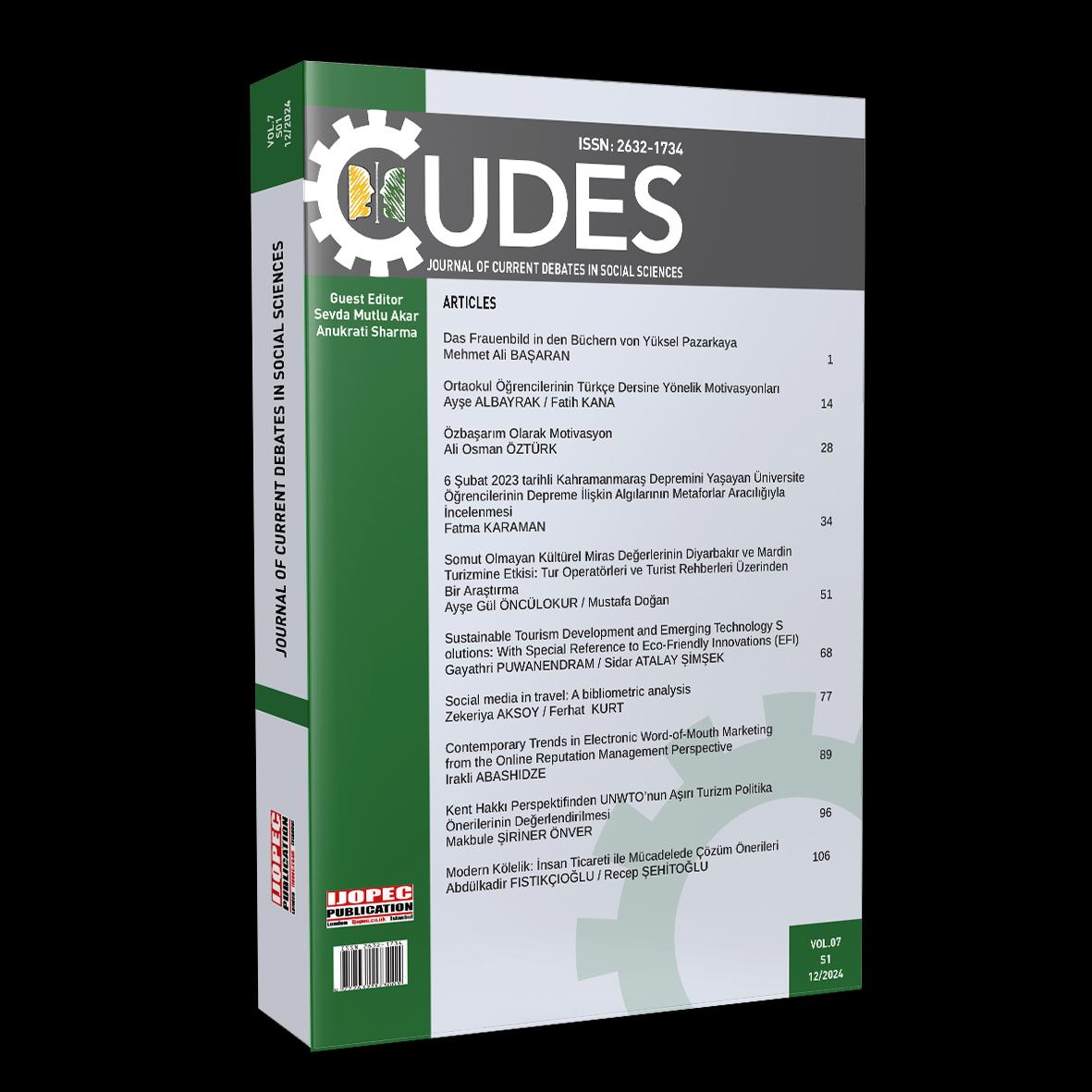Author :
Abstract
Bu araştırmanın amacı ortaokul öğrencilerinin Türkçe dersine yönelik motivasyonlarını belirlemektir. Araştırmanın örneklem grubunu Türkiye’nin batısındaki bir ilin ortaokulunda öğrenim gören 221 öğrenci oluşturmaktadır. Araştırmada ilişkisel tarama modeli kullanılmış ve veri toplama aracı olarak Arslan ve Taşgın (2019) tarafından geliştirilen "Türkçe Dersine Yönelik Motivasyon Ölçeği" uygulanmıştır. Verilerin normal dağılım gösterdiği tespit edilmiş ve analizlerde parametrik testler (t-testi, ANOVA) ile tanımlayıcı istatistiklere yer verilmiştir. Araştırmada öğrencilerin Türkçe dersine yönelik motivasyonları öğretmen davranışları, ders içeriği ve sınıf ortamı gibi çeşitli faktörlerden etkilenmektedir. Öğrencilerin motivasyonunu artıran en önemli etkenler arasında öğretmenin ders anlatımı, güler yüzlü ve ilgili olması öne çıkarken; sınıf gürültüsü, öğretmenin olumsuz tutumları ve dersin zorlayıcı içeriği motivasyonu olumsuz etkileyen faktörler olarak belirlenmiştir. Motivasyon düzeyleri açısından cinsiyet farklılıkları incelendiğinde, kız öğrencilerin hedef motivasyonunda, erkek öğrencilerin ise motivasyonsuzluk ve içsel motivasyon boyutlarında anlamlı farklılıklar gösterdiği tespit edilmiştir. Sonuç olarak, Türkçe dersine yönelik motivasyonel dinamiklerin öğretmen-öğrenci ilişkileri, ders içeriği ve sınıf yönetimi gibi unsurlarla doğrudan ilişkili olduğu görülmektedir.
Keywords
Abstract
The aim of this study is to determine the motivation of middle school students towards Turkish lesson. The sample group of the study consisted of 221 students studying in a middle school in a province in western Turkey. The relational survey model was used in the study and the “Motivation Scale for Turkish Lesson” developed by Arslan and Taşgın (2019) was applied as a data collection tool. It was determined that the data were normally distributed and parametric tests (t-test, ANOVA) and descriptive statistics were used in the analysis. In the study, students' motivation towards Turkish lesson is affected by various factors such as teacher behaviors, course content and classroom environment. While the most important factors that increase students' motivation are the teacher's lecturing, friendly and caring behavior, classroom noise, the teacher's negative attitudes and the challenging content of the lesson were identified as factors that negatively affect motivation. When gender differences were examined in terms of motivation levels, it was found that female students showed significant differences in goal motivation, while male students showed significant differences in amotivation and intrinsic motivation dimensions. As a result, it is seen that motivational dynamics towards Turkish lesson are directly related to factors such as teacher-student relations, course content and classroom management.





